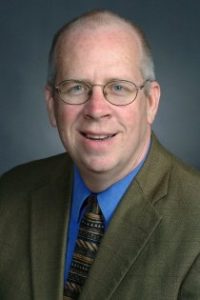Joe Shively is Associate Professor of Music Education and Director of the Center for Applied Research in Musical Understanding (CARMU) in the Department of Music, Theatre and Dance at Oakland University in Rochester, MI. He holds degrees in music education from Limestone College and the University of Illinois. Prior to beginning graduate study, he served as Director of Bands at Lewisville High School and Middle School and Clover High School in South Carolina. Dr. Shively has served as an adjudicator, arranger, clinician, drill designer, and program consultant for concert, jazz, and marching bands and orchestras throughout the United States. Dr. Shively has published book chapters and articles on constructivist learning approaches and instrumental music education. Additionally, Dr. Shively currently serves on the Board of Advisors for the National Conference on Percussion Pedagogy. His areas of interests include constructivist learning and teaching, instrumental music, teacher education, and philosophy.
Rethinking Constructivism as an Approach to Learning and Teaching Music: Situating Music in the Music Classroom
The implementation of constructivist approaches in music classrooms is often reflected in learning environments organized around authentic or real-world music experiences (e.g., Webster, 2011, Wiggins 2015). However, we need to consider the extent to which musical authenticity is altered when we bring music from outside school into the music classroom if we want our students to develop a musical understanding that helps them more meaningfully engage diverse musics both inside and outside of school. Popkewitz (2002) recognizes:
(A)n alchemy occurs as the knowledge of an academic field moves into the school. School subjects are organized in relation to the expectations related to the school timetable, conceptions of childhood, and organizational theories of teaching. The question of academic or disciplinary fields is transmogrified into social psychologies of instruction and theories for changing the dispositions and characteristics of the teacher and child. (p. 262)
School music, itself, is seen as alchemic (Koza, 2006)—the result of music and musical experiences “transmogrified” into a musical practice unto itself. However, the effect of the alchemy is not limited to that music which is most commonly viewed as school music. Bringing music that is situated outside of school into our classrooms to engage students in real-word music experience will also result in this alchemic process. In doing so, the real world that has the greatest impact on music education is that of school music. However, we do not have to remain bound by school music as we traditionally think of it. If we are to reach toward the ideals articulated in the MayDay group’s Action Ideal #1, we can foster learning that continues to connect to and build on music practices that are not traditionally part of school music. Expanding the range of music education is, of course, not a new idea. However, we do continue to examine how we might best do this.
Considering the alchemy can be in good in that we starting from authentic musical experiences that are subjected to the alchemy, rather than using pedagogy as a framework then adding music in a manner that seems to best fit that framework. Even an approach such as constructivism that values authentic, real-world experiences is susceptible to the alchemic forces of school music. Regardless of the extent to which music educators seek to maintain a music’s authenticity when brought from outside to inside school music, the alchemic process occurs. All music in school is situated in school. Rather than ignore or deny this, we should take a constructivist stance that is based on music making and listening. Music learning and teaching informed by constructivism has great potential to foster an adaptiveness that will support students’ navigation of music contexts both inside and outside of school.
The primacy of authenticity in the development of learning environments has the potential to lead us to ignore tensions between school music and other musics rather than embrace them to build even richer learning. The relationship of music to pedagogy in a constructivist classroom is critical to reconciling these tensions. Elliot & Silverman (2015), in exploring the problems of “an overemphasis on teaching music in adherence to this or that educational theory” question when:
‘(M)usic’ classrooms have become nothing more than little think tanks where students carry out the teacher’s pet theory or intellectualize (talk, talk, talk) about one or more dimensions of music at the expense of active, expressive, and creative music making and listening. (p. 114)
While Elliot & Silverman do not use the term constructivism in this passage, the critique they offer certainly applies to constructivist approaches seen in music (e.g., Webster, 2011, Wiggins 2015). While most constructivist approaches in education feature learners engaged in language-based problem solving, music educators would do well to focus on music though both sound and symbol.
In this paper, I examine how we might use the ideas of alchemy and authenticity to guide our efforts to develop learning environments that support our students’ construction adaptive knowledge through the repositioning of music making and listening as central to knowledge construction in the music classroom. Building on the reexamination of constructivism of Shively (2015), I will discuss how knowledge flows (Rodriguez-Elias, Martinez-Garcia, Vizcaíno, Favala, & Piatinni, 2006) in a sound-centered rather than word- centered music classroom. For one, we have to recalibrate constructivism to reflect Lincoln and Guba’s (2013) call to “Keep in mind these constructions are open to continuous reconstruction, as reflection on new or accumulated experience or on inputs and challenges from other individuals leads to new or added meanings and or sophistication” (p. 49). In this paper, I seek to resituate music within the constructivist music classroom in to apply constructivism to music rather than fit music within constructivism.

